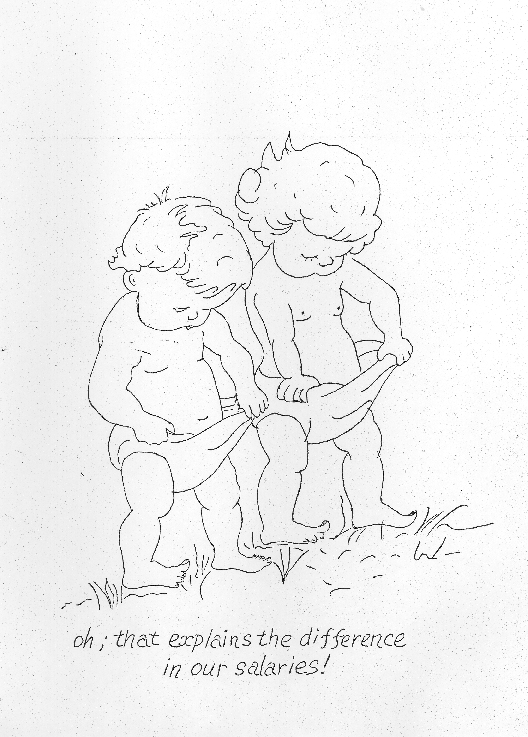By Molly Gullett
The Southwest Ohio Folklore Collection in the Archives & Rare Books Library’s Urban Studies Collection, is made up of several hundred small research projects of written and illustrated folklore that have been collected since the early 1970s by the students of professor emeritus Edgar Slotkin. In my efforts to make sense of such a wide variety of topics as I begin this year-long internship, I began sorting the papers into categories. In all, fifteen separate genres were discovered, among them proverbs, stories, jokes, children’s games, local festivals, the uncanny, bathroom stall graffiti, and food lore.
 Within the collection there are a number of humorous cartoons, or paperwork folklore, on topics ranging from the celebration of national holidays to marriage and gender equality. The collection also includes writings on folk ballads, drinking songs, and even singing telegrams, all examined through the lens of folkloric study.
Within the collection there are a number of humorous cartoons, or paperwork folklore, on topics ranging from the celebration of national holidays to marriage and gender equality. The collection also includes writings on folk ballads, drinking songs, and even singing telegrams, all examined through the lens of folkloric study.
While the dynamic range of information makes the collection valuable, what is even more compelling about the project is the rich abundance of local culture it conveys.
One paper from the collection analyzes local children’s conceptualization of ghosts, and this topic was explored by collecting students’ drawings from Fairview Elementary School.
The collection also includes several papers on tradition and collective ritual in local church festivals, school dances and flea markets.
The study of folklore is built upon analyzing a common tradition that pervades the everyday lives of a group of people. So whether it be fairies and gnomes or quaint proverbs, I hope to bring to light through this blog, small aspects of our everyday lives that are infused with otherwise overlooked folkloric tradition.
Before signing off, I want to remind everyone in the upcoming week of two very
important pieces of superstitious and proverbial advice. First, be sure in the upcoming week to, “Turn money over in the new moon if you wish to make it double,” and always remember to, “Never kiss at the garden gate, ‘cause love is blind, but the neighbors ain’t.”



